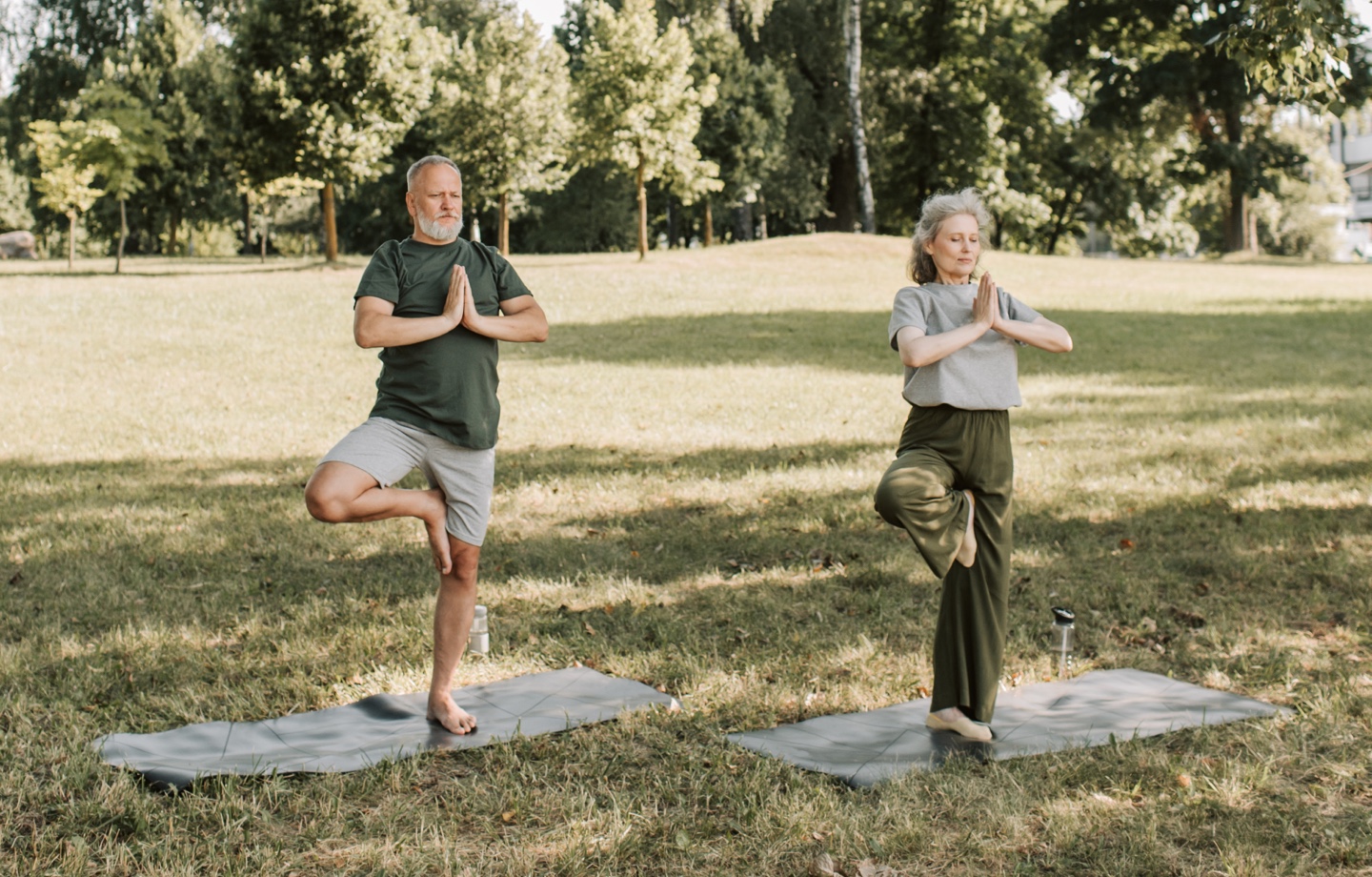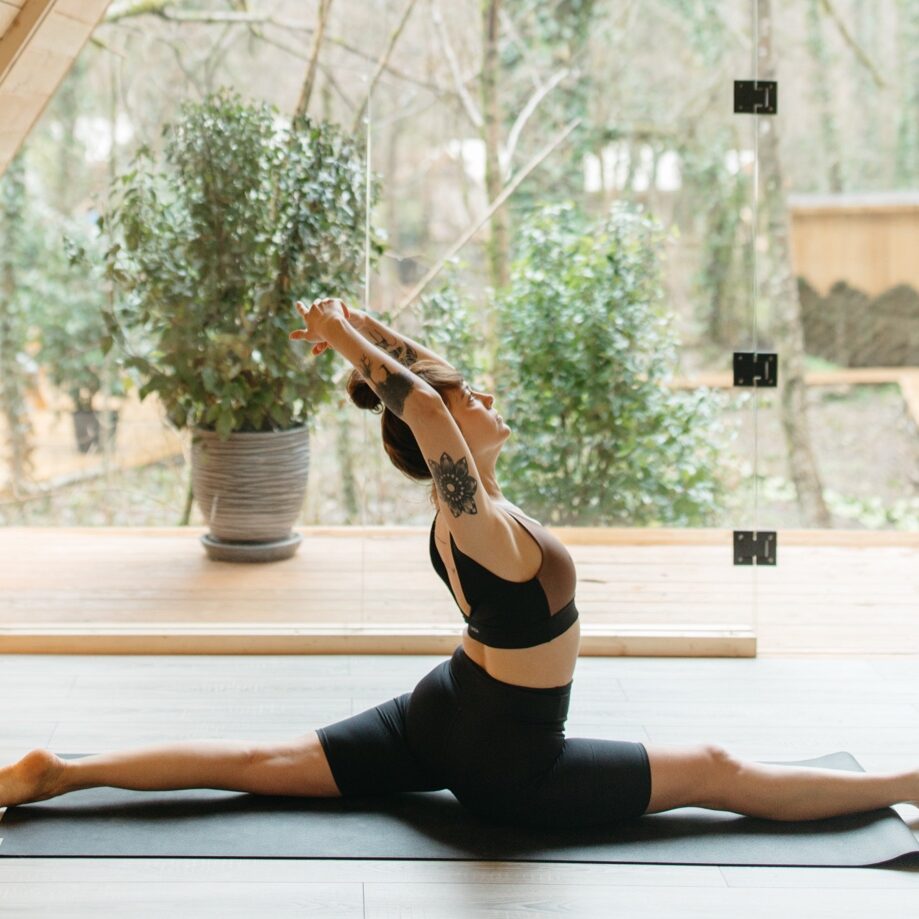Exercising in the morning and keeping the routine simple are essential to salvaging a workout after a lack of sleep.
Sleep doesn’t come easy for me. My insomnia is triggered by any number of sleep-hygiene no-nos — booze too close to bedtime; cataloging the next day’s to-do list as I lie in bed; staring at a screen too late in the evening; the list goes on.
When I give into these habits, I can expect at least two or three hours of fruitless tossing and turning, only to wake up the next day feeling groggy and sluggish. Like anyone who struggles with sleep, I’ve investigated myriad remedies for my poor slumber. In the meantime, I’ve learned how to function when I’m tired.
Because here’s the thing: I can’t just take a day off — from work or responsibilities — every time I have a sleepless night. And I extend this thinking to daily exercise. My morning workouts give me energy for the day ahead, and I love the mental benefits of the endorphins.
Read more: How Sleep Affects Your Health
I’ve learned through the years that there are actions I can take to salvage a workout when I’m running on empty. Sometimes, it’s as simple as shortening my routine. Other times, I scrap whatever I had in mind and opt for a brisk walk in the sunshine. As it turns out, there’s research to support these and other tactics.
A 2022 study by a group of researchers in Australia confirmed the negative effects sleep loss has on exercise performance and, importantly, identified what people can do if they want an effective workout after a night of too little slumber.
To understand a little more about the relationship between sleep and exercise, I caught up with two of the paper’s researchers — Jonathan Craven, a PhD candidate at Griffith University in Australia, and Chris Irwin, a nutrition researcher at Griffith University. Here’s what I learned.

The Relationship Between Sleep and Exercise
Irwin says he considers sleep to be one of the most under-appreciated pillars of health.
“Sleep is critical to pretty much all body systems and important from both a physical and psychological health perspective,” he wrote in an email. It can affect a person’s mood; reduce muscle strength and endurance; diminish motivation; alter cognitive function; and reduce fine motor skills. Good sleep can also increase the perceived effort of exercising.
That said, these effects can vary depending on different factors like the amount of sleep lost, which brings us to …
Defining a “Bad” Night of Sleep
While any amount of sleep loss can have negative health effects, not all bad sleep is equal. “We use the term ‘sleep loss’ as a general indication for lack of sleep, but this can vary considerably,” says Irwin.
A bad night of sleep for me, for instance, often means it took several hours to nod off — this is what Irwin calls “restricted” sleep. Restricted sleep, he explains, is getting less sleep than what is usual or recommended. It can happen either at the start or at the end of your night — you fall asleep later (like me) or wake up earlier.
A bad night of shuteye can also be defined as fragmented sleep — waking up several times throughout the night — or not falling asleep at all. Quality of sleep is also important, says Irwin.
A variety of factors can influence how a person responds to sleep deprivation. But there are two types of sleep loss that consistently have a negative impact on people: total sleep deprivation and waking up earlier than normal. This is important to note because it can help people make better decisions regarding their slumber. For instance, if you have to choose between staying up late or rising early, it’s helpful to know which may have a greater effect on your day.

Read more: 7 Tips for Breaking the Sleep Deprivation Cycle
Exercising on Little Sleep
Can you still exercise after a bad night of sleep? The answer depends on many factors, like the level of sleep loss, the quality of sleep, and the type of exercise being performed, says Irwin. But it is possible for someone to have a solid workout after acute sleep loss — and movement may actually help a person wake up.
“Exercise itself generates physiological responses (e.g., stimulating the nervous system, etc.) that act on similar biological pathways to sleep, so it could offset some of the effects of sleep loss,” says Irwin. “But again, this is likely to be dependent on factors such as the amount of sleep loss, type of activity, etc.”
The other benefit to moving your body after a night of restlessness is that there’s a positive relationship between exercise and sleep, adds Irwin. By exercising, you may help improve poor sleep patterns. But again, he emphasizes this is situational. There are many factors to consider when deciding whether it’s better to exercise or take a rest day.

Read more: How Therapy Can Improve Sleep
Tips for Working Out When Tired
- Exercise in the morning. If you’re going to train, Craven suggests prioritizing it in the morning, when your performance may be better. The 2022 study found that training can be compromised the longer in the day you wait, so you’ll have better results by exercising shortly after waking.
- Switch up your routine. Because a lack of sleep can affect cognitive function, Craven suggests choosing a workout that isn’t skill-based. For instance, if your morning movement involves a few rounds of pickleball, consider swapping it for lifting weights. Performing one or two reps requires less cognition and coordination than a dynamic sport like pickleball.
- Brew some coffee. We’d be remiss to leave caffeine off the list. Whether you enjoy yours in the form of a latte, matcha, or energy drink, caffeine can help counter the mental and physical sluggishness that comes from a poor night of sleep. In another study Irwin helped conduct, researchers found that as little as 80 mg of caffeine (or about one cup of coffee) can have a positive effect on physical performance in those who have experienced sleep loss. (As if you needed another reason to enjoy your morning brew.)
- Don’t be afraid to rest. In a culture obsessed with productivity and efficiency, it can feel wrong to rest. While this decision depends on the amount and type of sleep loss (among other things), rest can sometimes be more beneficial than exercise. If there’s a chance of injury, taking the day off is a better option than pushing through a strenuous workout.
Read more: The 7 Essential Types of Rest
Have feedback on our story? Email [email protected] to let us know what you think!

Shop Pillows
The Essential Organic Pillow Collection
Gentle, breathable, non-toxic support.







